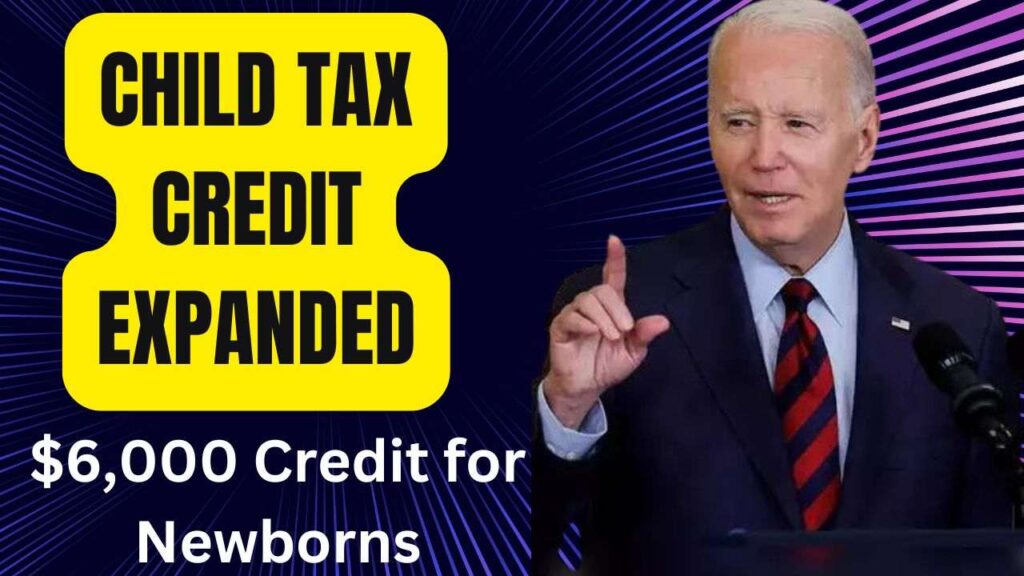As a result of the child tax credit being a prominent issue in the 2018 elections in the United States, Democratic candidate Kamala Harris has proposed an ambitious plan to provide a grant of $6,000 to parents who have recently given birth to their first child.
The goal of Harris is to increase the amount of support that is provided to families during the first year of a child’s life, which is a time when many parents find themselves in a difficult financial situation.
By increasing the amount of the child tax credit, Harris hopes to alleviate a considerable amount of trouble for families who are struggling financially and to alleviate some of the financial constraints that new parents are experiencing.
Proposed $6,000 Credit for Newborns
The child tax credit has been expanded in the past, and Kamala Harris’s plan expands on such expansions. According to the law that is currently in effect, parents are eligible to earn up to $2,000 for each child under the age of 17, with $1,600 of them being refundable.
| Title | Proposed $6,000 Child Tax Credit for Newborns in US |
| Governing Body | The United States of America Government |
| Category | Finance |
| Official Website | www.irs.gov |
| Applicable in | The United States of America |
Nevertheless, Harris suggests that the credit be increased to a total of $6,000 Credit for Newborns who are in the first year of their child’s life of existence.

A temporary enhancement of the child tax credit was included in the American Rescue Plan of 2021. This plan expanded the benefit to $3,600 for children under the age of six and to $3,000 for children between the ages of six and seventeen. This idea is comparable to that proposal.
This temporary expansion had a major impact on reducing the number of children living in poverty, and Harris is attempting to recreate that achievement with her proposal for parents of newborns.
The New Credit System and How It Would Operate?
The idea put forth by Harris would provide parents of newborns with a sum of $6,000 Credit for Newborns during the first year of their child’s life to assist them in covering expenses such as nappies, food, medical treatment, and necessary baby gear.
Even households with a low or nonexistent tax due would be eligible to receive the full amount of the enlarged credit as a refund because it would be fully refundable.
In addition, the plan would do away with the condition that families have a certain amount of income or maintain employment. This would ensure that all qualified families would receive the credit regardless of their current financial situation.
During the period that is considered to be the most financially difficult for new parents, this idea is intended to assist families. Costs associated with medical care, basics for the infant, and decreased income as a result of time off from work can put a burden on household budgets.
Family members would be able to devote their attention to the care and well-being of their newborn children if they were eligible for the child tax credit of $6,000.
The Elimination of Child Poverty
The expansion of the child tax credit in 2021 might be considered one of the key objectives behind Harris’ proposal, which is to lower the amount of children who are living in poverty.
According to research conducted by the Centre on Poverty and Social Policy at Columbia University, the expansion that took place in 2021 was credited with substantially lowering the rates of child poverty by about thirty per cent.
It is possible that if Harris’ idea is followed, it may further lower the amount of children living in poverty and assist children in growing up in surroundings that are more financially stable.
Parents would be able to better cater for their children’s needs with the additional monies that the child tax credit would provide. This would improve the quality of life for children as well as the financial security of families.
Replies from Republicans in Response to the Proposal
Some Republicans have also expressed interest in increasing the child tax credit, even though Democrats, particularly Harris, have been the driving force behind the proposed extension of the credit.
As an illustration, Donald Trump made a passing reference to the possibility of a “significant expansion” of the child tax credit while he was running for office; however, detailed specifics have not been specified.
Senator J.D. Vance, who is competing for the Republican nomination for vice president, has also expressed support for a credit that might be as high as $5,000 per child. Both Vance and Trump, on the other hand, admitted that the expansion of the child tax credit would be contingent on negotiations with Congress as well as the economic feasibility of the situation.
Funding for the Child Tax Credit Expansion
One of the most significant obstacles that is associated with Harris’ idea is the question of how to finance the expansion. To fund the cost of her plan, which also includes additional measures to support families, Harris has proposed increasing taxes on major firms and individuals with high incomes.
It is important to note that particular specifics of these tax increases have not yet been disclosed, which has resulted in some ambiguity regarding the plan’s capacity to be implemented over the long run.
Expanding the child tax credit is a step in the right direction for families, according to the Committee for a Responsible Federal Budget. However, to ensure that it does not add to the national debt, the funding for this expansion through tax hikes must be both clear and sustainable.
To alleviate the financial strain that families are under at one of the most crucial stages of a kid’s development, Kamala Harris has proposed increasing the child tax credit for parents of newborns to a maximum of six thousand dollars.
By increasing the amount of assistance that is provided to families and by reducing the amount of poverty that children experience, Harris intends to make the future financially secure for millions of children in the United States.
This plan has already stirred attention and controversy among both Democrats and Republicans, even though it is only in the discussion phase.
Important Specifics of the Proposal
- Financial Assistance Right Away:- The credit would be accessible in the year of birth, enabling families to take control of their finances from the very beginning of the process.
- The Child Tax Credit (CTC) would be greatly increased for families with newborns under this idea, which would result in a more considerable amount of assistance being provided to children during the early stages of their lives.
- Support that is specifically geared towards low- to middle-income families, who frequently struggle to meet the financial obligations that come with raising a kid, is the primary target of the expansion.
- The idea takes into account a wide variety of family configurations and guarantees that all families, regardless of their personal histories, would be able to take advantage of the benefits.
Final Thoughts
It is a huge step towards improving the Child Tax Credit and giving families the help they require during a precarious period that the proposed $6,000 Credit for Newborns represents.
| Homepage | https://uhmychart.org/ |
As the policy debates progress, the various stakeholders will be required to analyse the advantages of additional support in comparison to the worries over the budget. During the time that they are welcoming new life into their homes, this project may represent a brighter and more secure future for a great number of families.
Even though this proposal is gaining steam, it is still extremely important for parents and carers to remain aware of the possibility of changes to the Child Tax Credit and how these changes may influence their financial planning in the years to come.
PV Martinez holds an MBA in Finance from the University of Michigan. When not analyzing numbers, PV enjoys playing football and spending time singing his favorite tunes.





